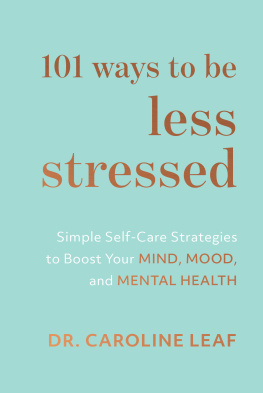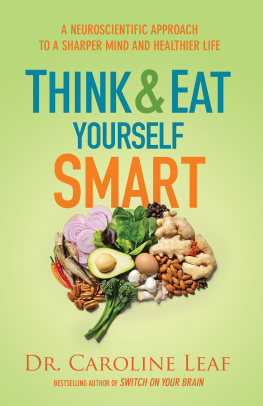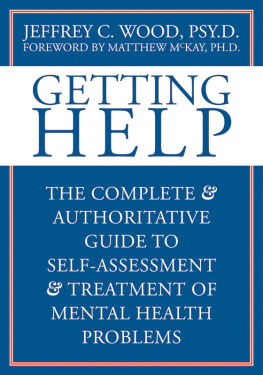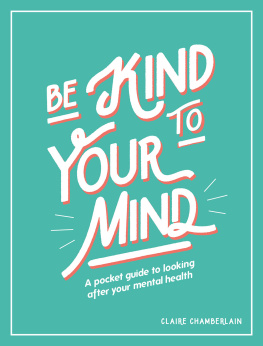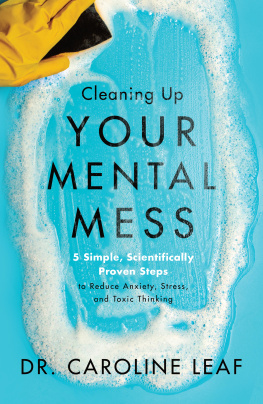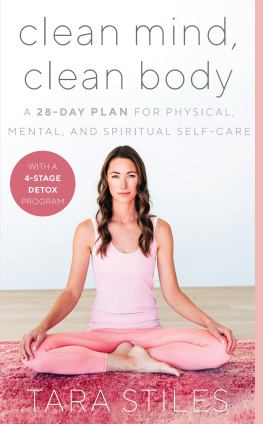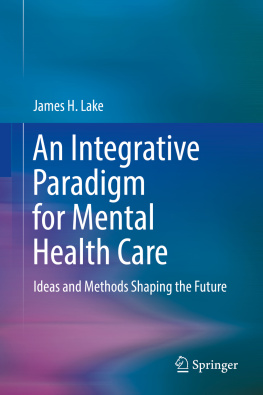All rights reserved. No part of this publication may be reproduced, stored in a retrieval system, or transmitted in any form or by any meansfor example, electronic, photocopy, recordingwithout the prior written permission of the publisher. The only exception is brief quotations in printed reviews.
Library of Congress Cataloging-in-Publication Data is on file at the Library of Congress, Washington, DC.
This publication is intended to provide helpful and informative material on the subjects addressed. Readers should consult their personal health professionals before adopting any of the suggestions in this book or drawing inferences from it. The author and publisher expressly disclaim responsibility for any adverse effects arising from the use or application of the information contained in this book.
introduction
Although many of us spend time focusing on our physical health, whether its going to the gym, to a Pilates class, or for a morning jog, we often forget to work on our mental health. Yet the mind is the source of all our thoughts, words, and actions; when our thinking is unhealthy, our life will be unhealthyeven if we work out seven times a week and eat kale every day.
Its very important to spend time focusing on our mental self-care regimen and ways to be less stressed, since mental toughness and resilience will get us through difficult times and help us achieve success in every area of life, as I discuss in my book Think, Learn, Succeed . When our mind is strong, well be able to handle whatever life throws our way; we can go from surviving to thriving.
Of course, life can be very challenging. Were constantly facing stressful situations at work, at home, at school, in the car... you name it! In many cases, our reactions to these situations can make things worse. If we let our thoughts and emotions get the best of us, we can negatively impact both our mental and physical well-being. Uncontrolled thoughts and emotions run rampant through our brain, creating neurochemical chaos that can make us anxious, affecting our ability to think clearly and process information. This is one of the major roadblocks to success and can allow other toxic thinking habits and mental health issues to take root.
Heres the good news: our mind is incredibly powerful and incredibly capable. Our brain can change as we think (neuroplasticity) and grow new brain cells (neurogenesis). Using the incredible power in our mind, we can persist and grow in response to lifes challenges. We can take our thoughts captive and change the way we think, speak, and act.
Our minds are more than prepared to stand up to these trials and overcome themall we have to do is think well . Mentally healthy people can handle all of lifes challenges. By changing our thinking and living a life of mental self-care, we can improve the way we think and how we live.
This book was created as a guide to help you understand the unique power of your mind, your choices, and your impact. It is, essentially, a beginners how-to guide to mental self-care. Its a guide to 101 simple self-care strategies to boost your mind, mood, and mental health. As you reflect on each tip, I recommend the following process: ask , answer , and discuss.
These three actions underscore the intentional and deliberate process of learning that produces intelligent memory, which goes beyond merely reading some information you will forget later (for more on learning and memory formation, see my book Think, Learn, Succeed ).
First, ask . In a journal, write down several questions about the tip youve read. For example, you can ask yourself, Have I ever felt that I wasnt good enough? That I couldnt cope with the circumstances of life? How did I respond? What effect did this have in my life? Your questions are meant to provide a starting point for an internal dialogue, much like questions you and I would ask each other during a day-to-day conversation.
Next, answer . Here you apply the tip to your own life by responding, in detail, to your questions in the ask section. It is important to remember that there are no right or wrong answers in this section. You answer your own questions, which are shaped by your experiences and the unique way you think, feel, and choose (see my book The Perfect You for more information).
Finally, discuss . In your journal, you further examine your own thoughts, words, and actions, considering the mental self-care tip of the day, expanding your observations, and thinking of practical ways you can change your mind and change your life.
So, are you interested in learning how to use the incredible power of your mind to persist and grow in response to lifes challenges? No matter what life throws your way, when you master the art of mental self-care, you will boost your mind, mood, and mental health and achieve success in life.
Set your intentions for the week
At the beginning of each week, set your intentions for the week, including some time for fun and for thinker moments, when you switch off to the external and switch on to the internal to just let your mind wander and meditate. This will help you mentally prepare for the week ahead, help you build up stress resilience, and give you time to organize your thinking. What are your intentions for this week? When is the right time for you to set your intentions for each week?
Be open and honest with your intentions
The majority of arguments and misunderstandings happen because you and I are not clear or honest about how we feel or what we want, either because we expect others to just know what we want or were afraid to be open about how we feel. The solution: practice being open, clear, and honest about your intentions while being gentle and kind. What are some of your intentions that you could communicate to those you love?
Learn what your body needs and make it a priority
The gut microbiomethe world of bacteria living in the digestive systemdoesnt just exist to help us break down food. Theres a constant conversation going on between the brain and the gut, which has its own amazing neurons, just like the spinal cord. The relationship between the gut and the brain is incredibly important when it comes to mental health. So make your gut health a priority by listening to your body and watching what you eat.
When you are panicking about something, focus your attention on one thing
When youre panicking, find a single object to focus all your attention on. Pick one thing in clear sight and consciously and deliberately note everything about it you possibly can: describe the patterns, color, shape, and size of the object to yourself. Focus all your energy on this object to help control the symptoms of panic.
Incorporate more thinker moments into your day
When you take time to switch off to the external and switch on to the internal and just let your mind wander, you boost your brain health. These thinker moments give your brain a rest and allow it to reboot and heal by letting your mind wander and daydream, which increases clarity of mind and the ability to problem-solve. So be intentional about creating daily thinker breaks throughout your day, or when youre feeling stressed out, to switch off and just focus on the internal by taking a few minutes to sit and daydream or meditate. How will you start incorporating more thinker moments in your schedule?

